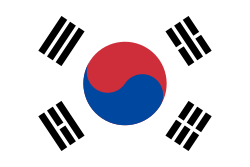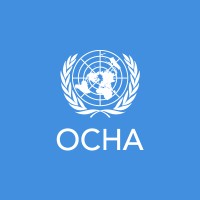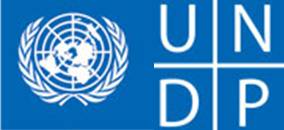IOM Vision
IOM Ethiopia focuses on supporting crisis-affected populations in Ethiopia, including vulnerable migrants and returnees, addressing immediate humanitarian needs, while undertaking longer term actions to build resilience and foster sustainable peace and development.
Objective
Saving lives and protecting people on the move
People targeted under this component are 2,575,744 displacement-affected people. Target communities participate in this effort from start to finish - from local women's committees supporting project design and management, to daily worker programmes for project implementation. People targeted include 43,750 refugees assisted with relocation assistance. Through the ES/NFI and CCCM Clusters, IOM will also continue to support cluster partners (international and national NGOs (I/NNGOs), other UN agencies, and national and regional government authorities).
In addition, IOM will support 125,279 vulnerable returnees to Ethiopia, including 85,915 forced returnees from KSA, 7,614 returnees from Yemen, 27,750 spontaneous returnees at land PoEs, and 4,000 migrants supported through IOM’s MRCs. Support to migrant returnees will include food, WASH, NFIs, health/nutrition, MHPSS and protection.
|
To address the needs of crisis-affected populations, IOM proposes to:
|
|
In 2022, IOM’s CCCM teams will provide site coordination and management support to enable the provision of assistance and protection to displaced populations and returnees, including activities to mitigate the spread of COVID-19. IOM will implement CCCM programming directly and through the RRF supporting implementation by other Cluster partners. As CCCM Cluster co-coordinator, IOM will further aim to strengthen the Cluster, newly activated in 2021, and continue to provide strategic and technical guidance and support to Cluster partners and government authorities. CCCM support will focus on the four pillars of response:
|
|
In 2022, IOM intends to strengthen and expand upon its core health activities in current areas and launch further support to new operational locations in response to needs, incorporating COVID-19 support in its routine primary health care provision including MHPSS. IOM’s interventions are closely coordinated and integrated with the government health system. Activities will include:
|
|
In 2022, the overall objective of the MHPSS programme is to build sustainable local capacities and provide comprehensive, integrated and community-based MHPSS services that promote the resilience, mental health and overall well-being of crisis-affected populations. Activities will be aligned with the Inter-Agency Standing Committee (IASC) pyramid of intervention, covering all four levels, and considering MHPSS mainstreaming in all relevant IOM Ethiopia programming. Implementation is in line with the IOM Manual on Community-Based Mental Health and Psychosocial Support in Emergencies and Displacement. Activities will include:
|
|
In 2022, IOM, in coordination with UNHCR, government, and other partners, will provide relocation assistance and protection in a timely, safe, voluntary and dignified manner for emergency movement assistance from points of entry (PoEs) to designated camps in Ethiopia, as well as relocation between camps, particularly in the context of Tigray region. There is an effective feedback mechanism in place to ensure that beneficiaries receive adequate and timely information on access to travel and movement assistance. Experienced medical and operations staff are deployed in operational areas to ensure their safety and dignity. Activities will include:
|
|
IOM aims to strengthen its protection response in crisis settings through the following interventions:
To strengthen the protection response to vulnerable returning migrants at air and land PoEs, IOM plans to carry out the following interventions:
|
|
IOM’s 2022 WASH strategy will focus on the expansion of emergency response capacities coupled with recovery activities in areas that are stabilizing. In close coordination with local government authorities and the WASH cluster, IOM will implement WASH programming directly and through RRF sub-granting to international and national NGOs. Activities will include:
|
|
IOM’s 2022 ES/NFI programme will pursue emergency response as well as recovery activities in more stable locations. Emergency response interventions will ensure critical steps are taken to provide safety, dignity and access to basic household supplies and emergency shelter for displacement-affected populations and returnee migrants, while recovery programmes will pursue participatory shelter repairs and rehabilitation targeting returnees and affected populations. Housing and land issues will be assessed and prioritized for support in all relevant contexts to ensure adequate security of tenure and avoid the eviction of beneficiaries. Cash-based interventions (CBI) will be considered, dependent on the context of each target area. Where possible, shelter interventions will be conducted alongside the WASH, CCCM, and health sectors to increase the impact of the response. Activities will include:
As co-lead of the ES/NFI Cluster in Ethiopia, co-chair of five sub-national cluster coordination structures for the Northern Ethiopia response (four in Tigray and Amhara and one in Afar) and sub-national co-coordinator in other displacement-affected areas, including Somali region, East Wellega (Oromia region), and Benishangul Gumuz, IOM will continue to support the cluster through:
|

Objective
Driving solutions to displacement
|
IOM seeks to achieve sustainable reintegration of IDPs in protracted displacement, crisis-affected populations as well as IDP and migrant returnees to contribute to sustainable peace and development. IOM will collaborate with community actors, such as women's peace committees as agents of change and marginalized groups, as well as relevant governmental and non-governmental stakeholders to promote inclusive peacebuilding processes and strengthen institutional capacity of local actors. In addition, IOM will promote the sustainable reintegration of former combatants. |
|
IOM supports climate- and conflict-affected communities across Ethiopia to re-establish social and economic structures, as well as local, regional, and federal governance structures, in the wake of crises. In 2022, IOM will focus on (1)implementing interventions working with community networks and local governance structures to promote social cohesion and strengthen institutional capacity, contributing to community self-reliance and the conditions necessary for recovery; (2)supporting sustainable livelihood and economic activities for vulnerable IDPs, returnee and host community households to improve their socioeconomic conditions and strengthen their local integration, focusing on the socioeconomic empowerment of vulnerable youth and women in view of high youth unemployment and gender disparities in Ethiopia, and (3) providing viable alternatives to prevent, mitigate and reduce the drivers and negative effects of irregular and return migration and to stabilize socioeconomically distressed communities – aggravated by the COVID-19 pandemic - through community-based interventions in ten key migration hotspots, promoting partnerships and foster positive interaction among returnees and non-migrant members of the community, as well as with local NGOs that have an active presence at the grassroots level. Activities will include:
|
|
With the overall goal of contributing to the Government of Ethiopia (GoE)’s efforts to progressively resolve the displacement of IDPs in the country, IOM will focus on supporting the implementation of the Durable Solutions Initiative (DSI) Ethiopia, jointly launched by the GoE and the United Nations in December 2019. In 2022, IOM will continue to support:
|
|
Given the fragility of state and community structures, IOM aims to support national processes to promote peace and reconciliation and the building of an inclusive peace infrastructure and dispute resolution mechanisms. IOM will implement interventions that aim to strengthen the capacity of local government and local inter-governmental structures on conflict prevention, as well as customary conflict resolution mechanisms. In addition, through a bottom-up approach focused on communities at the grassroots level, IOM will organize interactive community activities to find durable resolutions to conflicts and to foster stability and social cohesion among various ethnic groups, including marginalized community members such as youth, women, and persons with disability. Activities will include:
|
|
In 2022 in response to drought in southern Ethiopia, IOM support more permanent solutions for water shortages including borehole drilling in arid areas, complementing emergency WASH activities to respond to the needs of impacted communities and help them endure future shocks. Activities will include:
|
|
IOM Ethiopia will continue to support the recovery and strengthening of resilient health systems with the aim to move from the direct provision of essential services through IOM, to more comprehensive health services through a bolstered national capacity. Activities will include:
|
|
|
In order to carry out a comprehensive resolution of post-conflict issues and challenges in areas of relative peace and stability in Ethiopia, there is a need to include land and property restitution as necessary steps toward recovery, and as part of possible broader reconciliation processes, and durable solutions for displacement-affected communities and populations. This approach will also require the rehabilitation and reconstruction of damaged infrastructure, especially community properties, due to the destruction caused during inter-ethnic and inter-regional conflicts that affected the personal property of families and communities. In line with the Government of Ethiopia’s policy of peace and reconciliation and the need to restore dignity in recovery, IOM will work closely with the relevant institutions and partners to restore property rights and other priority interventions in the recovery process. IOM will target regions and woredas, with recognized and legitimate local government authorities, that are gradually recovering from displacement and/or, hosting returned, relocated, or locally integrated IDPs. This process will facilitate their personal and community recovery and development. Activities will include:
|
Objective
Strengthen preparedness and reduce disaster risk
|
Under this Objective, IOM will target government actors who are managing PoEs, focusing on health aspects of border management, government health, and MHPSS actors, as well as local government structures and communities affected by displacement or at risk of displacement due to natural hazards. IOM will also work closely with ministries and communities to strengthen health systems along mobility corridors by supporting the understanding of the implications of mobility for communicable disease preparedness and response, and contributing to the surveillance and management of outbreaks as part of a unified health and mobility management approach. |
|
IOM uses a holistic two-fold approach to implement activities that contribute to disaster risk reduction and uplift communities overall. On one hand, IOM will work to prevent and/or mitigate displacement related to natural hazards through improved disaster risk management, preparedness and response. On the other hand, IOM will support communities to build resilience through the recovery and reconstruction process in line with the Sendai Framework for Disaster Risk Reduction. Activities will include:
|
|
IOM will continue to support PoEs and their main stakeholders to strengthen health aspects of border management amid the COVID-19 pandemic. This work will include:
|
|
IOM Ethiopia will continue to support the Government of Ethiopia to strengthen health systems, in particular relating to disease surveillance and outbreak case management. Activities will include:
|
|
To strengthen systems for mental health and psychosocial support in Ethiopia, IOM will support the following activities:
|
Objective
Contribute to an evidence-based and efficient crisis response system
The IOM Displacement Tracking Matrix (DTM) is an information management system to track and monitor population displacement and movements during crises. It also tracks population mobility at points of entry, along mobility continuum and border communities through activation of flow monitoring points. IOM aims to provide the Government of Ethiopia, as well as humanitarian, recovery, and development partners, with a reliable evidence base for planning, advocacy, and response. Targeted entities include government ministries and humanitarian, recovery, and development partners, including United Nations agencies and I/NNGOs.
|
To provide the Government of Ethiopia and the crisis response community with a reliable evidence base for planning, advocacy, and response, IOM proposes a comprehensive data collection strategy that will apply a holistic view on the different trends and needs of mobile populations in Ethiopia. Activities will include:
|
Ethiopia
The map used here is for illustration purposes only. Names and boundaries do not imply official endorsement or acceptance by IOM.
Figures are as of 31 December 2023. For more details of IOM's operational capacity in country, please see the IOM Capacity section.




























